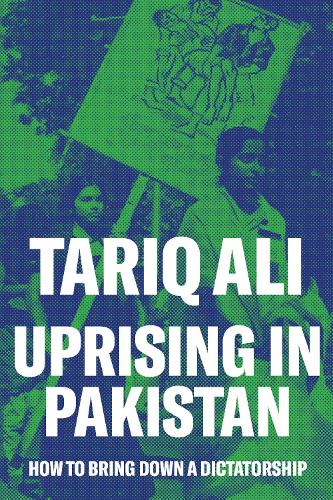
Uprising in Pakistan: How to Bring Down a Dictatorship
(Paperback)
Publishing Details
Uprising in Pakistan: How to Bring Down a Dictatorship
By (Author) Tariq Ali
Verso Books
Verso Books
1st July 2018
United Kingdom
Classifications
General
Non Fiction
Revolutionary groups and movements
954.9104/5
Physical Properties
Paperback
176
Width 140mm, Height 210mm, Spine 14mm
225g
Description
The story of what happened in 1968 in Pakistan is often forgotten, but is yet another proof that the revolutionary moment was global. In that year, following a long period of tumult, a radical coalition led by Zulfikar Ali Bhutto brought down the military presidency of Ayub Khan. Students took on the state apparatus of a corrupt and decaying military dictatorship backed by the US. They were joined by workers, lawyers, white-collar employees, and despite the severe repression, they took hold of power. Through a series of strikes, demonstrations and political organising a popular uprising was born. In his riveting account of these events, first written in 1970, Tariq Ali offers an eyewitness perspective on history, showing that this powerful popular movement was the only successful moment of the 1960s revolutionary wave. The victory led to the very first democratic election in the country and the unexpected birth of a new state, Bangladesh.
Reviews
Ali remains an outlier and intellectual bomb-thrower; an urbane, Oxford-educated polemicist. * The Observer *
Pakistan is the most dangerous country in the world...Yet most Americans don't realize how much of the Pakistani peril is our own fault. The Duel ... should be read for an understanding of, first, what role America has played in creating this dangerous mix and, second, why many Pakistanis see us as responsible for their problems. * --The Washington Post [for The Duel] *
A well-informed, compelling narrative...' * Guardian [for The Duel] *
knowledgeable and well connected. More importantly, he doesn't shirk from pointing out the failings of his friends' * Daily Telegraph [for The Duel] *
Author Bio
Tariq Ali has written more than two dozen books on world history and politics the most recent of which are The Obama Syndrome, The Extreme Centre and The Dilemmas of Lenin as well as the novels of his Islam Quintet and scripts for the stage and screen. He is a longstanding member of the editorial committee of New Left Review and lives in London.
